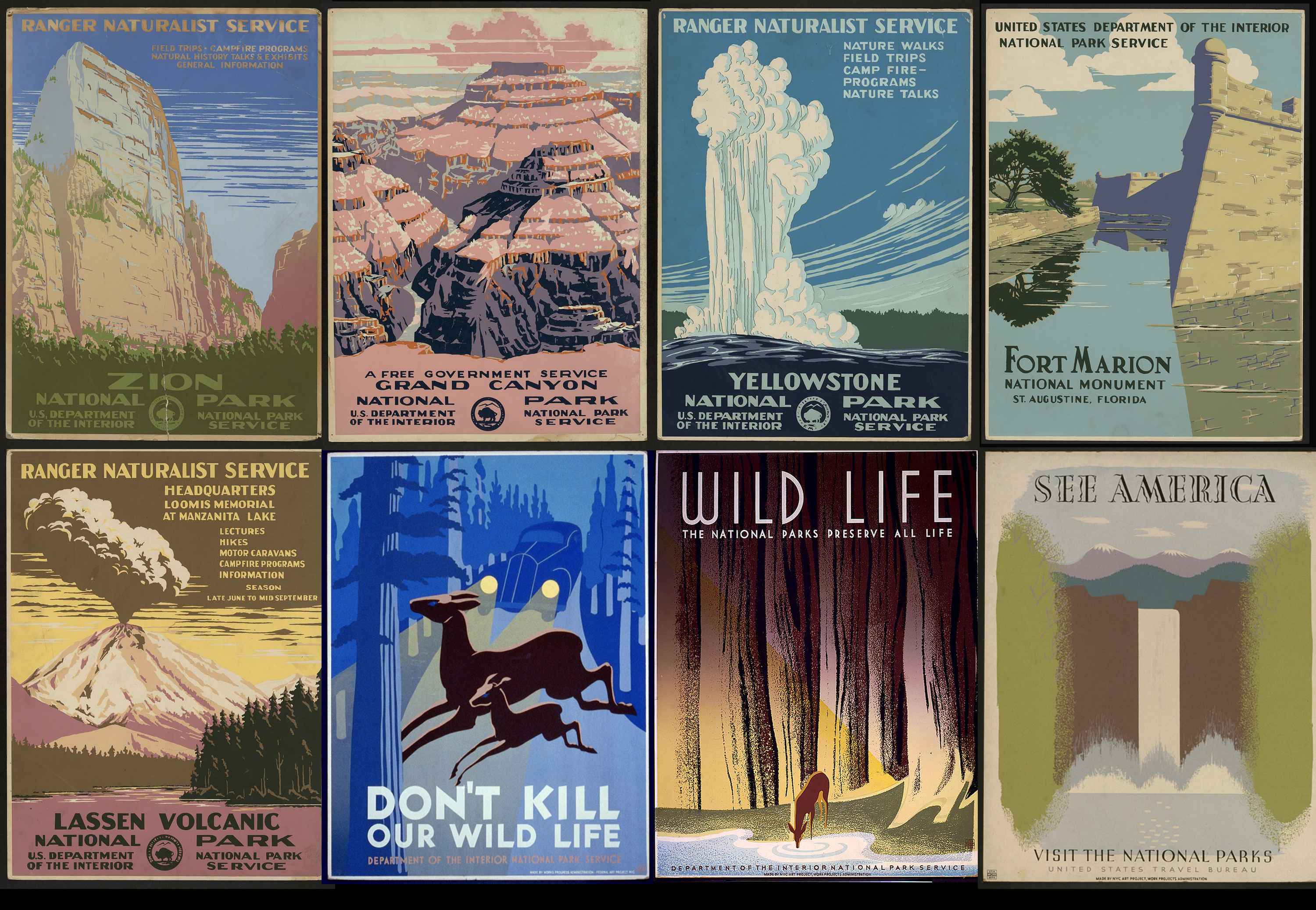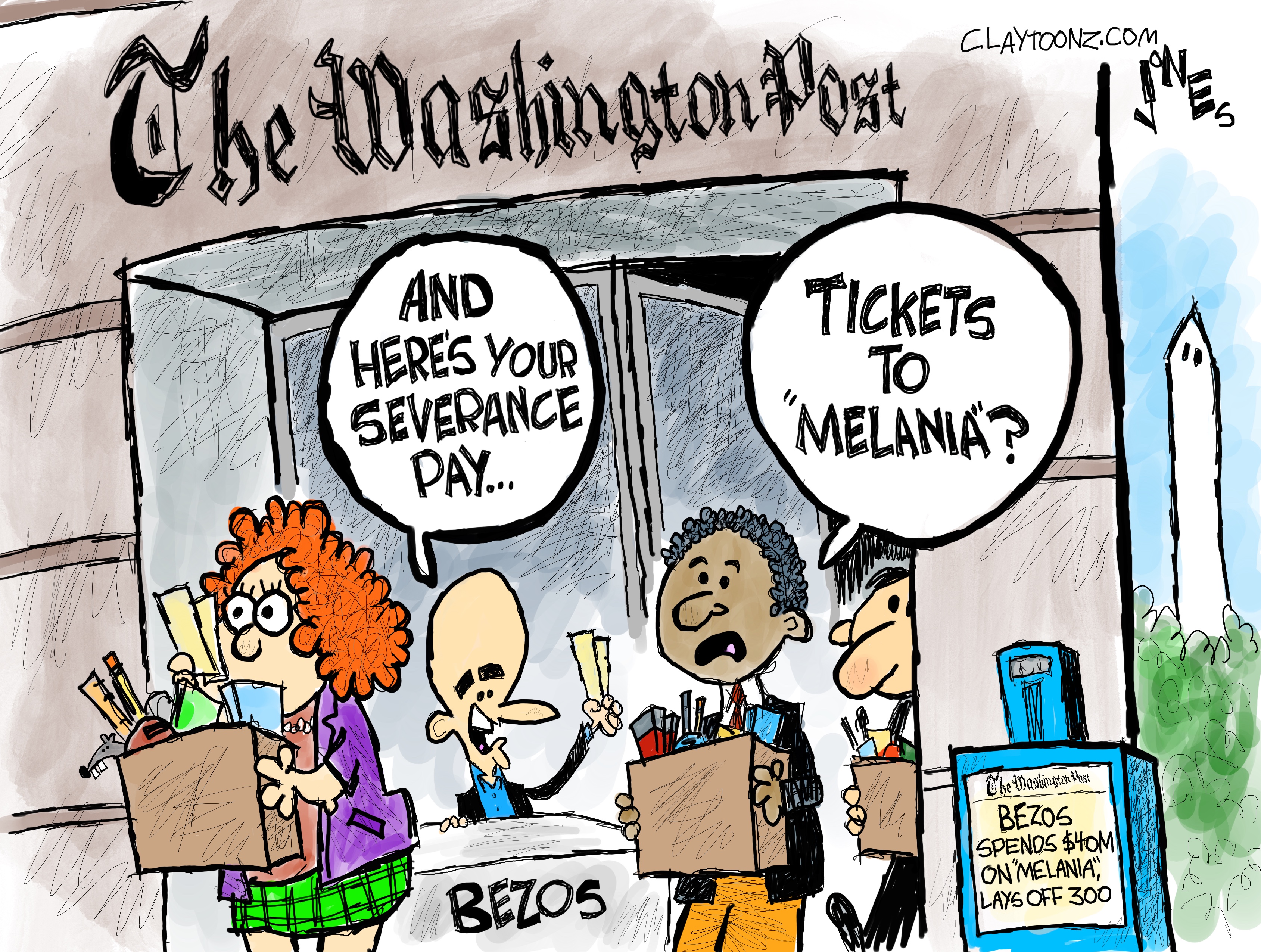Why the national park is the best idea America ever had
America's greatest innovation might be preservation


A free daily email with the biggest news stories of the day – and the best features from TheWeek.com
You are now subscribed
Your newsletter sign-up was successful
In this hellish election season, one glorious online refuge I've created is a Twitter list with all the public lands feeds I could find. It's got accounts from the various national parks, national monuments, the Bureau of Land Management, the Forest Service, and so on. When left-wing infighting or Donald Trump's barking lunacy becomes too much to bear, I head over to this relaxing spot full of beautiful landscapes, adorable animals, and anodyne service notices.
It's a reminder that despite the fact that the country seems to be very nearly coming apart at the seams, there is still much to recommend it — namely, its spectacular beauty. When it comes to protected public lands, there are none better than America's.
Ours is a boastful nation, prone to ridiculous exaggeration of our own innovativeness. Too often, it's empty wind. In a great many areas — like our disastrously inefficient medical system, or our pathetic passenger rail — we're still far behind where Europe was 50-80 years ago. Heck, we can't even match Romania at internet speed — and that was developed here a mere generation back!
The Week
Escape your echo chamber. Get the facts behind the news, plus analysis from multiple perspectives.

Sign up for The Week's Free Newsletters
From our morning news briefing to a weekly Good News Newsletter, get the best of The Week delivered directly to your inbox.
From our morning news briefing to a weekly Good News Newsletter, get the best of The Week delivered directly to your inbox.
But national parks are unquestionably an American development. Pushed by American writers and activists, we established the first one in 1872: Yellowstone National Park. This served as a model around the world, from Australia to South Africa to Costa Rica. As Wallace Stegner once wrote, national parks might fairly be called "the best idea we ever had."
Not all protected areas are national parks these days, of course. We've developed a tiered system over the years, comprising 58 national parks, 121 national monuments, various state-level parks, and a stupendous variety of BLM land. The parks are supposed to be the most special, followed by monuments, and so on. While that is generally true, there are all manner of hidden gems throughout the lesser tiers (Dead Horse Point State Park, for example).
There has been an increasing focus on parks as an economic development strategy for rural communities — I myself have written about it extensively. To be sure, it's a far more sustainable path than oil and gas, and it is important to develop stakeholders in the park's continued existence over time.
But that is not the best thing about parks. Unspoiled nature is where one goes to feel de-commodified: to escape from the crushing grasp of our complex, technocratic economic superstructure and get some peace and quiet. It's both calming and healthy, but also a reminder that all of world society and wealth is built on quite a fragile foundation of nature that we are changing at breakneck pace.
A free daily email with the biggest news stories of the day – and the best features from TheWeek.com
One's favorite parks are always a matter of taste. As a Utah native I'm naturally partial to the famed Southwest parks and monuments. From the Temple of Sinawava in Zion, to the delicate pillars of Bryce, to the Waterpocket Fold in Capitol Reef, to The Maze in Canyonlands, to the Fiery Furnace in Arches; there is something magic and lovely about the harsh Utah desert. As Edward Abbey put it in a book he wrote while serving as a park ranger in Arches:
The wind will not stop. Gusts of sand swirl before me, stinging my face. But there is still too much to see and marvel at, the world very much alive in the bright light and wind, exultant with the fever of spring, the delight of morning. Strolling on, it seems to me that the strangeness and wonder of existence are emphasized here, in the desert, by the comparative sparsity of the flora and fauna: life not crowded upon life as in other places, but scattered abroad in sparseness and simplicity, with a generous gift of space for each herb and bush and tree, each stem of grass, so that the living organism stands out bold and brave and vivid against the lifeless sand and barren rock. The extreme clarity of the desert light is equaled by the extreme individuation of desert life-forms. Love flowers best in openness and freedom. [Desert Solitaire]
Then there is the Grand Canyon. I haven't seen every national park in the world, nor yet even all the ones in the United States. But I have hiked the Fish River Canyon, camped in the Okavango Delta, toured Kruger National Park, and bungee jumped before Victoria Falls; by my lights none can equal a trip down Colorado River through the Grand Canyon for beauty or magnificence.
But that's not remotely all. There's Big Bend in Texas, Shenandoah in Virginia, Yosemite in California, Rocky Mountain in Colorado, Great Smoky Mountains in North Carolina and Tennessee, Olympic in Washington, Grand Teton in Wyoming, Glacier in Montana, and of course Yellowstone. Every one of these would be a signature national treasure in a medium-sized country; America has them by the fistful.
Of course, neither the Park Service, nor the Forest Service, nor the BLM are without flaws. All have some amount of bureaucratic dysfunction and a scandal or two. Some of the parks and monuments are expensive white elephants, others need better management. The poor old BLM is overstretched, underfunded, under constant harassment from nutcases, and has to deal with about seven different contradictory goals — all while managing a staggering 247 million acres of land and 700 million acres of subsurface mineral rights.
Yet compared to the rest of the government, these agencies are basically alright. The Park Service in particular is a model of competence and quality service, despite being slowly strangled by Republican austerity like everything else in the government. Go to a national park or monument, and I can predict with high confidence that you'll have a good time. In a very real sense, it's your land — and mine too. Get out there and enjoy it!
Ryan Cooper is a national correspondent at TheWeek.com. His work has appeared in the Washington Monthly, The New Republic, and the Washington Post.
-
 Nan Goldin: The Ballad of Sexual Dependency – an ‘engrossing’ exhibition
Nan Goldin: The Ballad of Sexual Dependency – an ‘engrossing’ exhibitionThe Week Recommends All 126 images from the American photographer’s ‘influential’ photobook have come to the UK for the first time
-
 American Psycho: a ‘hypnotic’ adaptation of the Bret Easton Ellis classic
American Psycho: a ‘hypnotic’ adaptation of the Bret Easton Ellis classicThe Week Recommends Rupert Goold’s musical has ‘demonic razzle dazzle’ in spades
-
 Political cartoons for February 6
Political cartoons for February 6Cartoons Friday’s political cartoons include Washington Post layoffs, no surprises, and more
